About us
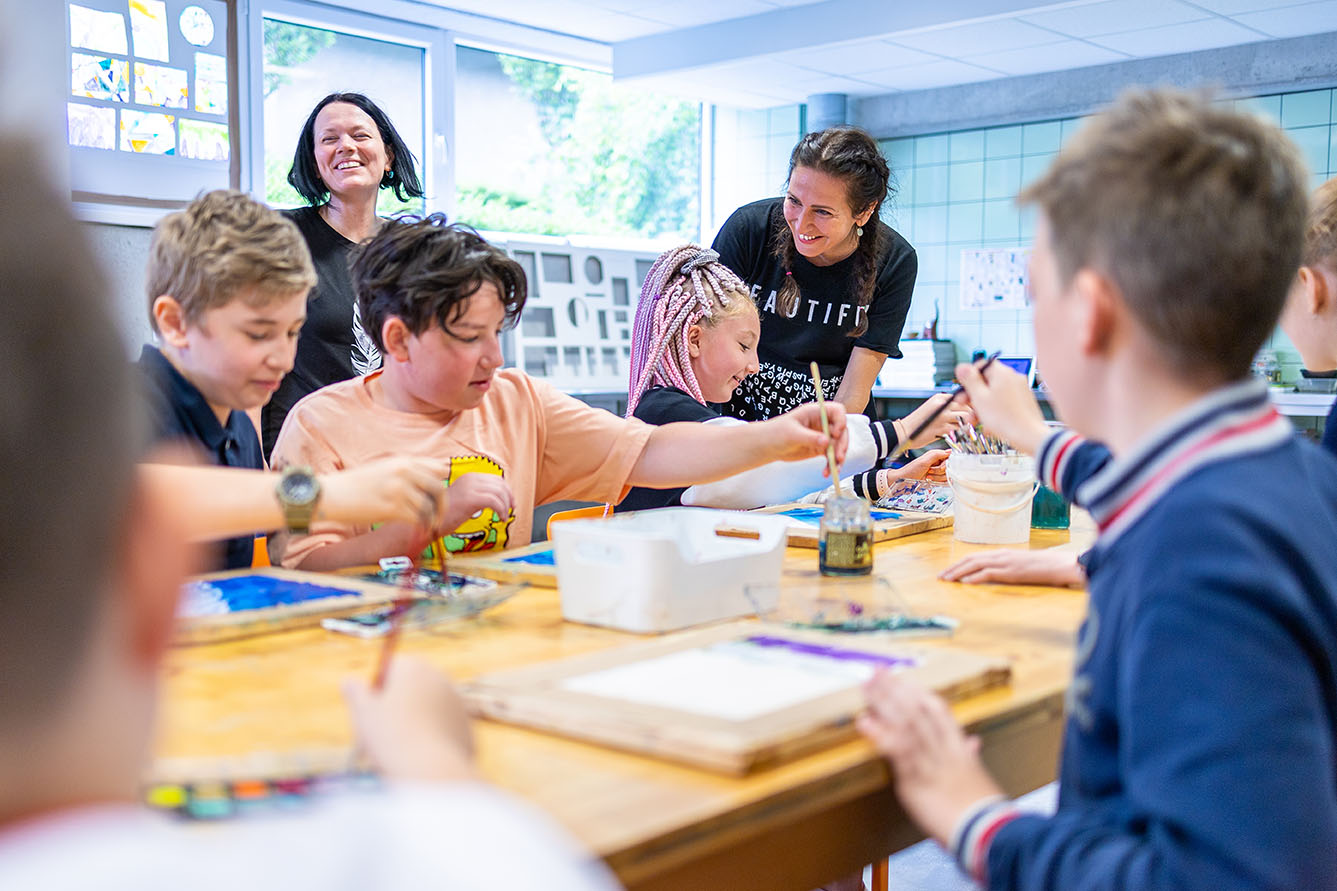
Livingston aims to provide a modern education that prepares children for the world that awaits them. We believe that the key competences for children are independent thinking and decision-making, critical thinking, the ability to work in a team, the art of empathy and conflict resolution, and last but not least, the ability to adapt to a changing world. We place these competencies at least on par with classic school knowledge and outputs.
At Livingston, we allow each child to develop at their own pace and in their own way. The reason is simple, all children are not the same and do not have the same prerequisites to handle the same things in one moment. By allowing the child to fully express his strengths and talents, he naturally develops and moves much further than the classical curriculum would allow him to. We use individual plans for this, which the children set together with the teacher for a pre-defined period and through which the child directly participates in the pace and content of what he will attend to at school.
Of course, we do not give up even on matters that are not easy for the child and he does not find interest in them, they must meet at least the minimum standard that is given in advance, but we will give him the option of his own timing.
How it works?
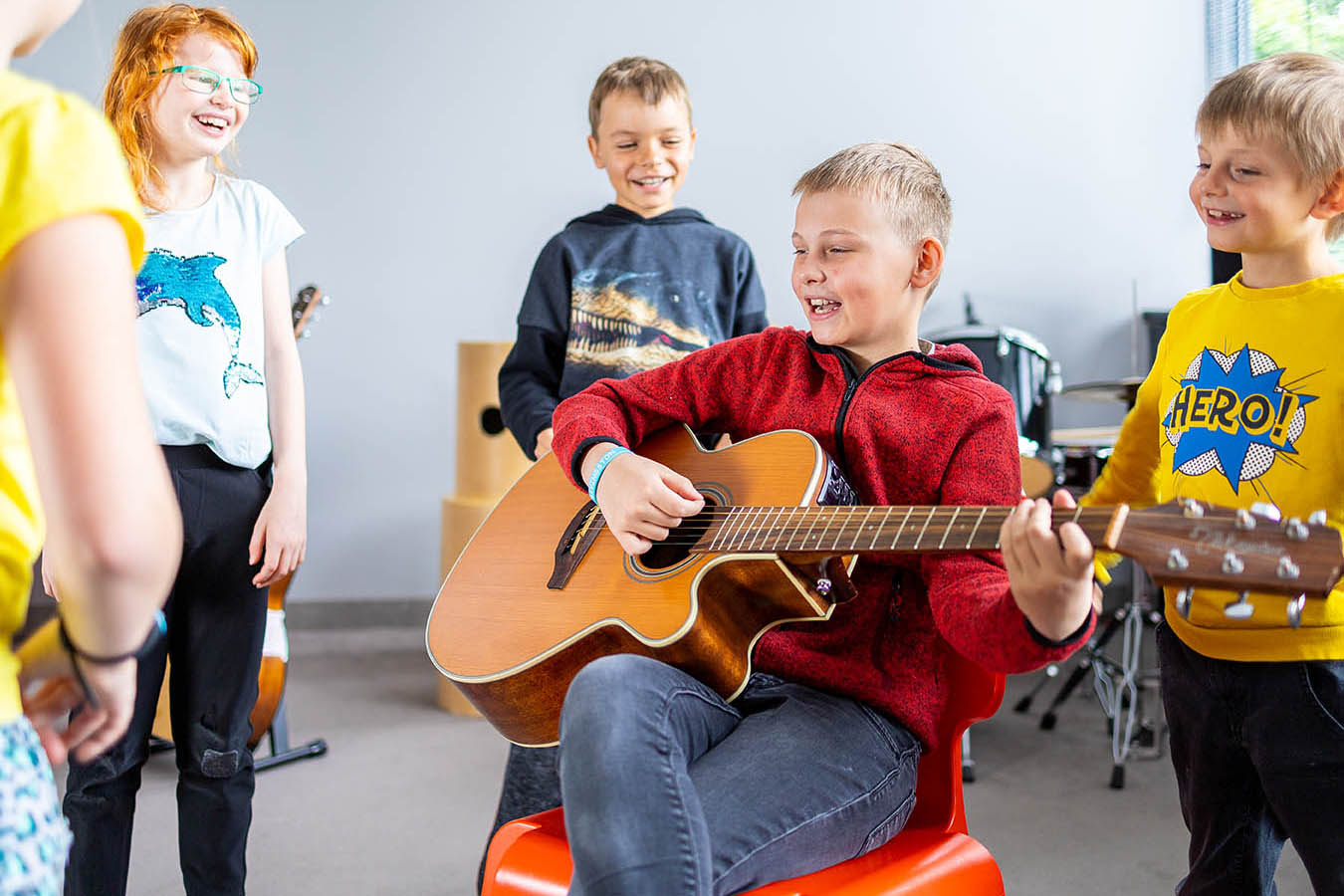
Making mistakes is normal. And useful too!
Read more
We take mistakes as a natural thing that moves us forward. That’s why we don’t punish them with a grade reduction or a black dot. Instead, we help children realize the mistake and correct it. Of course, it wouldn’t be possible without mistakes – they show us where to improve. But it is important that children are motivated by the desire to grow and discover. Not the fear of being punished for failure. At Livingston, we always follow the path of positive motivation so that every child experiences success with us.
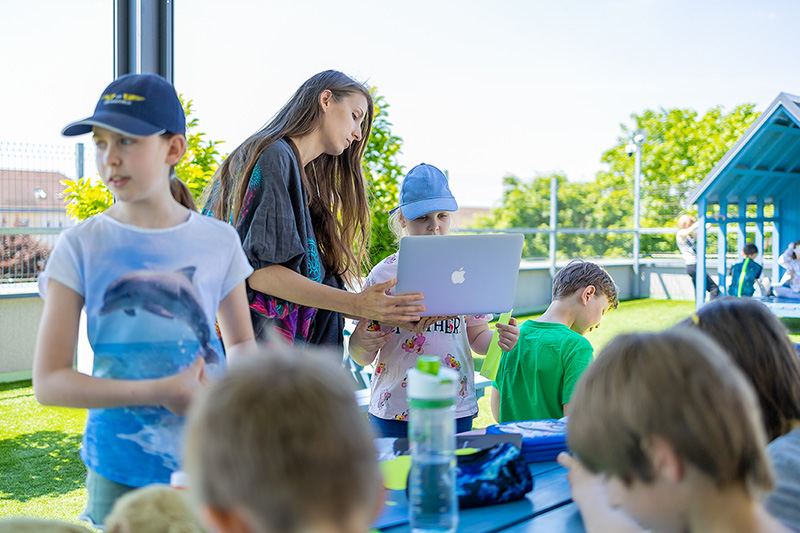
Critical thinking – essential equipment of the information age.
Read more
It also annoyed us at the base when we had to memorize things and recite learned definitions in front of the blackboard. Now we can change that. And so we prefer to let children think, look for connections and find answers to questions. It’s not just that learning is more efficient and fun. The development of critical thinking becomes an important prerequisite for application in the information society. In our reading and writing workshops, children from the first grade learn reading literacy. Children are exposed to the Hejné method from the first grade, and at the same time we can also offer other approaches.

We learn in ninety-minute blocks. And there is no bell here.
Read more
Our teaching blocks are twice as long as usual, but this does not mean that children are twice as bored. Quite the opposite. They can immerse themselves more in the activities without being interrupted by the bell after a while. After all, we don’t even have that here.

We start at 9 o’clock.
Read more
Teaching from the age of 8 is not good for children’s biorhythms. It is proven that at 8 o’clock children are not yet fully ready to perceive. That’s why we start brainstorming at the stroke of nine.
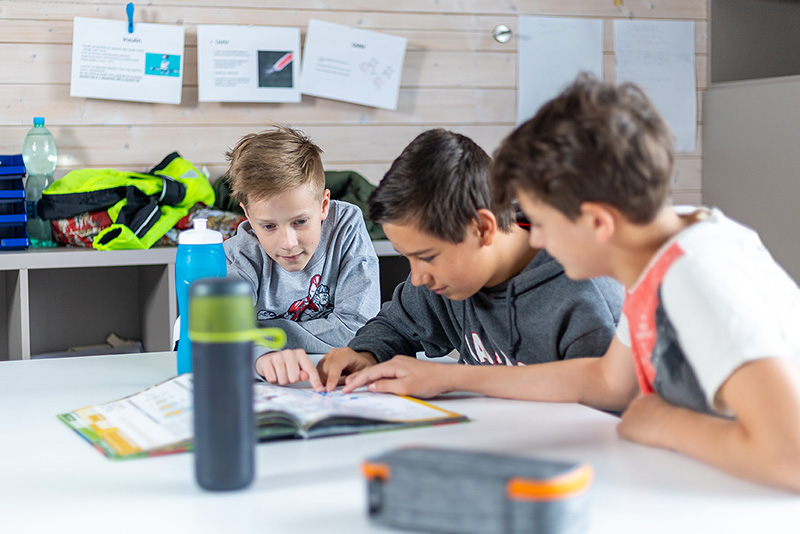
Internal motivation AKA we know why we study.
Read more
We look for meaning behind everything we do. Our teachers not only impart skills and knowledge to the children, but also explain to them what they will be useful for. That is why, for example, in mathematics we do not count examples without context, but instead set up a virtual store or buy goods. When children understand why they are learning the subject, they are motivated to learn even more. We believe that children are competent beings, so we create an environment where children achieve their goals, work independently and go through activities from start to finish. Meaningfulness and an empowering approach help children and us adults to build internal motivation.
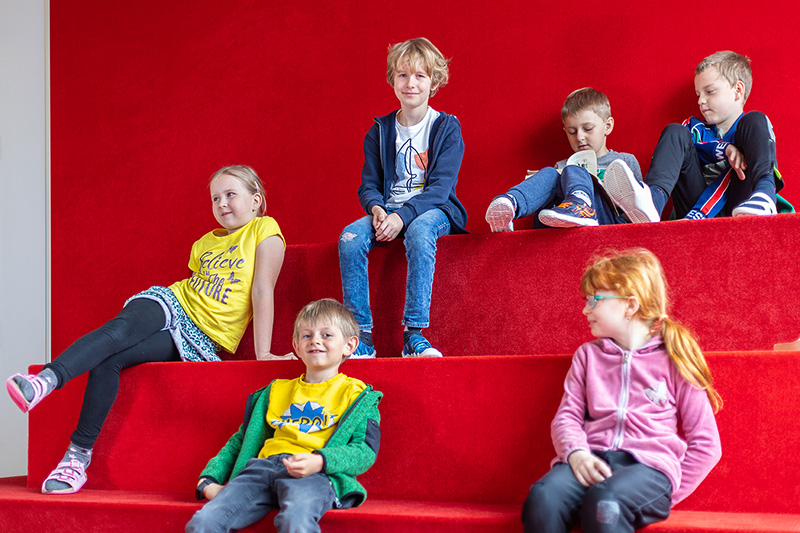
We support children’s natural abilities.
Read more
At Livingston, everyone develops what they do best, and at the same time we know how to work with developmental areas. With the help of the teachers, the children draw up individual plans that take into account their strengths and what they need support in. We organize the lessons in such a way that the children fulfill the mandatory outputs of the Framework Education Programs of the Ministry of Education and Culture, and at the same time we do not force them to know everything perfectly. We do not compare children with each other, each progresses at his own pace and together with the teacher checks how well he is fulfilling his progression plan. Thanks to this system, children are more satisfied and have the desire to continue improving.
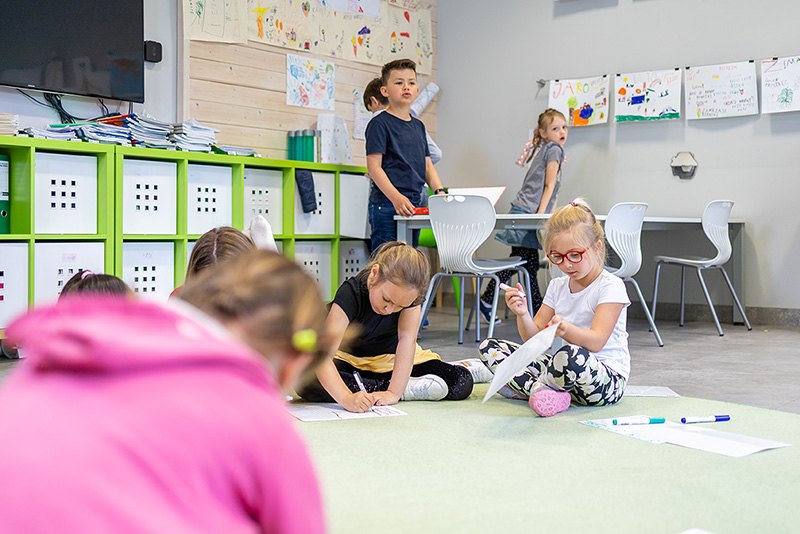
Mixed age classes for effective and fun learning.
Read more
We don’t have “A’s” or “B’s”. Actually, we don’t have classic classes at all, but we learn in mixed age groups. After several years of experience with mixed classes, we see that they allow children to learn faster and more effectively from their classmates, and it is easier to build a good classroom climate in them. Most of the time, children are in classes with two adults. Two adults thus have the opportunity to effectively manage the class, individualize teaching and attend to the specific needs of the children. There is a maximum of 16 children in one group.
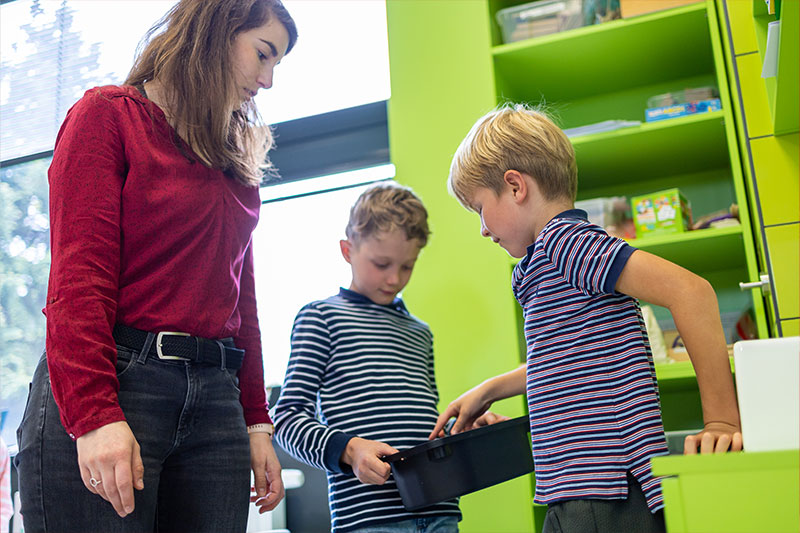
We all set the rules together.
Read more
In Livingston, children also participate in making the rules. Thanks to this, they naturally understand them as their own and do not feel the need to define themselves against them. This makes our school an environment full of mutual understanding and trust, where everyone feels safe.
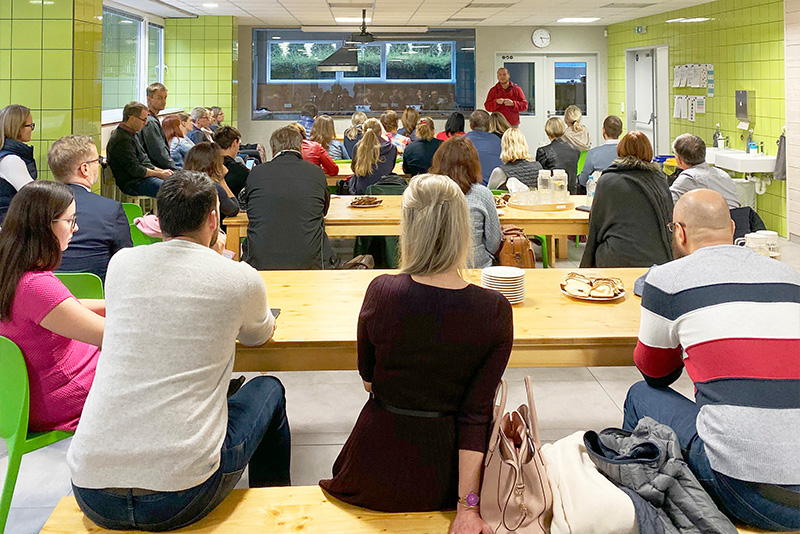
We need parents who are on the same page as we are.
Read more
It is important for us that parents also understand the priorities of teaching in Livingston, which differs in many ways from a classic, performance-oriented school. Instead of grades, we provide children with purposeful and structured feedback. Whether it is an evaluation of the weekly plan or a report card, the children learn where they are and where they should go next. We evaluate what children do. No, what they are. We don’t grow “Shikulky”, dependent on praise. For children, the greatest praise is when they see for themselves what they have improved. That’s why we need parents who don’t cling to A’s in school or excellent tests.
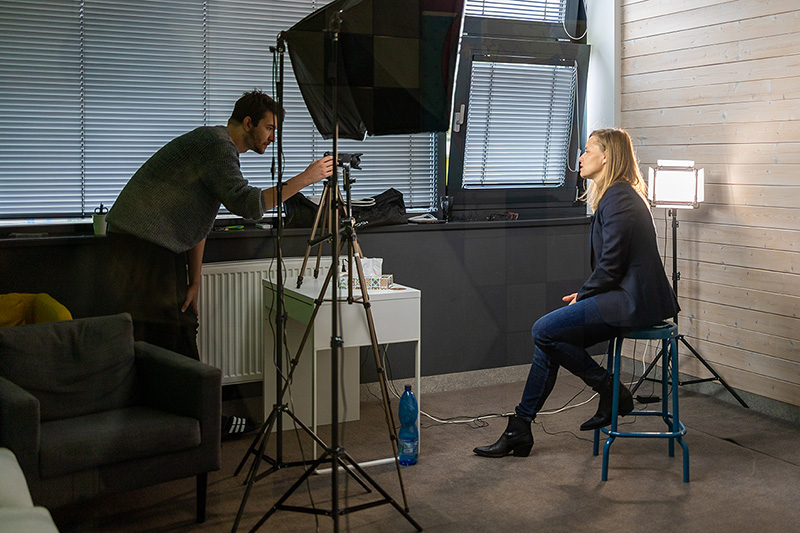
Modern technology is an everyday part of learning.
Read more
For us, computers and iPads are a real teaching tool, and not just a fun diversion or a digital textbook. With their help, we teach children to think critically, work with information and its resources, and create. iPads here help children to develop their own creativity and try things that would not be possible without them. Modern technologies and work with them form a sophisticated system throughout the school, the like of which you would find in few Czech schools. We leave mobile phones locked in the locker.
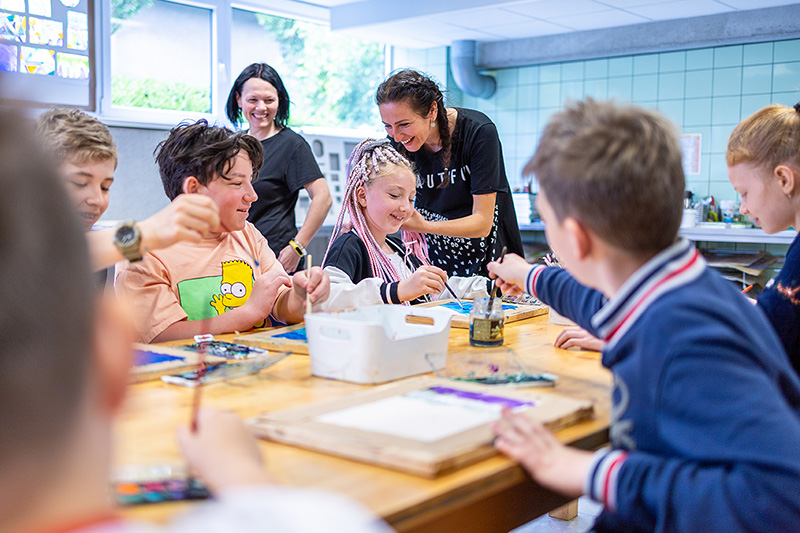
Teachers are partners of children in the educational process.
Read more
Adults are children’s partners in education here. We treat children as equals, we respect their individuality and uniqueness. That’s why we all touch each other. And rather than teachers, we simply call ourselves “adults”.
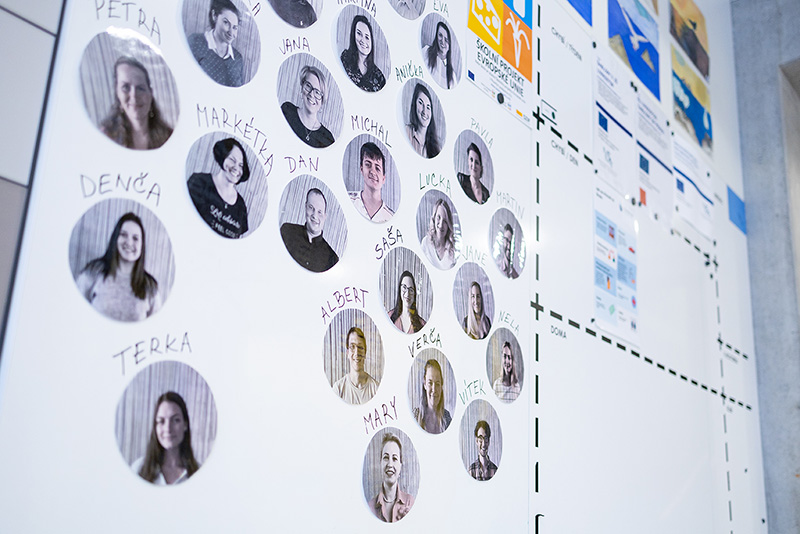
We choose teachers who believe in the concept of our school.
Read more
The right environment for us is created by people, which is why we choose teachers and educators for our team who see education in a similar way to us. How I think about myself reflects how we think about the children who attend our school. Each of the adults goes through a series of trainings on various topics and supervision seminars throughout the year. We like to look under the hood, so we are fans of tandem teaching, we often visit each other in class and shoot videos that we analyze together in a safe environment.
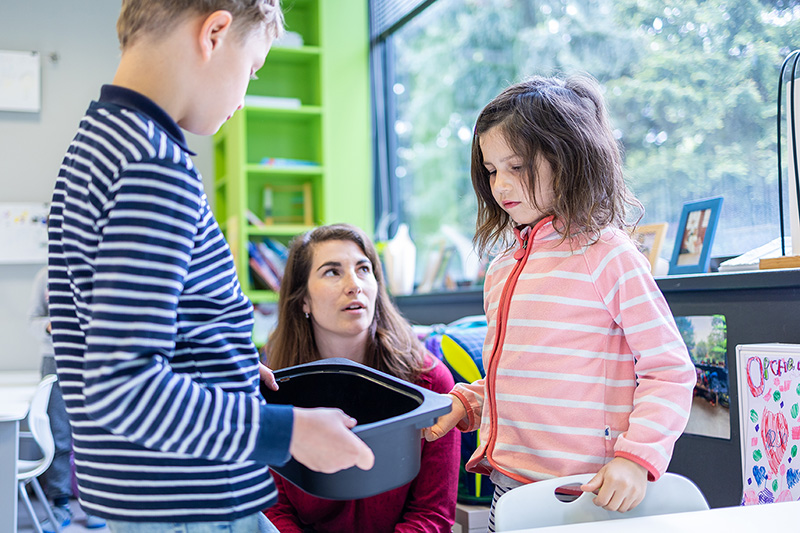
We learn to understand ourselves and each other.
Read more
We don’t raise kids to be solo players. We teach them mutual communication and conflict resolution. When someone breaks the rules, we decide together how to correct the situation. We lead children to responsibility and with the help of individual plans we teach them to work with time and the goals they have set for themselves. We believe that soft skills are at least as important as Czech or mathematics.
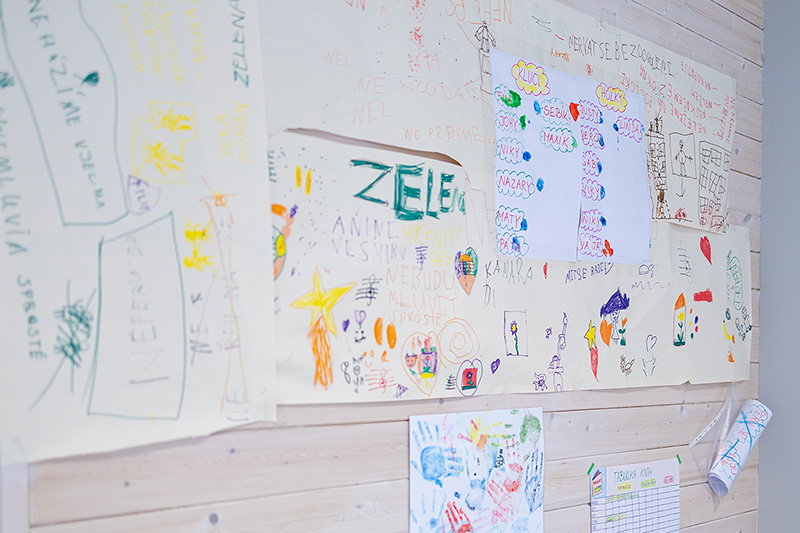
Grades? No, thank you!
Read more
Do you also remember how it felt unfair to grade PE or singing? After all, each of us has a talent for something else, someone sings excellently and feels the rhythm, but can’t even run a kilometer. Now imagine that it’s exactly the same with math or reading. We find it unfair and completely unnecessary to grade children when the grade is based on some artificially set boundary that is the same for all children and does not respect their natural talents or handicaps. That’s why we use a system of feedback, self-assessment and, for older children, percentages that reflect how well the child has tackled the given problem within their own capabilities.
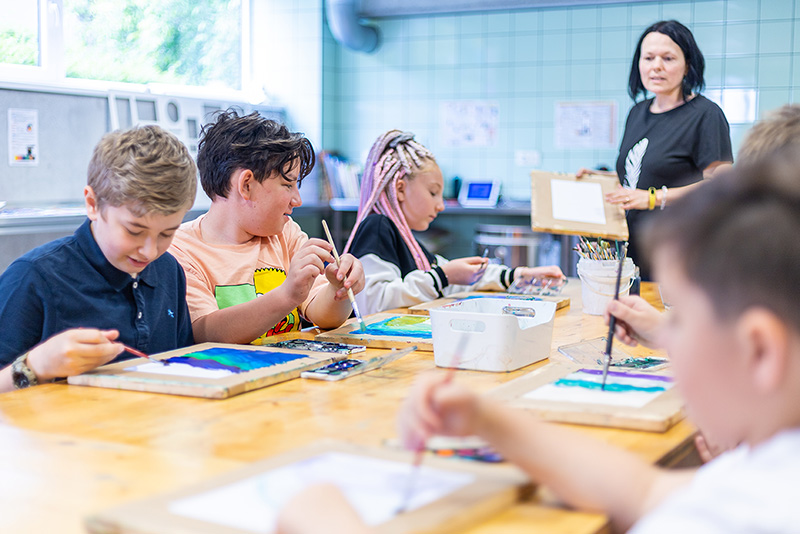
The school is open to parents.
Read more
Parents regularly participate in so-called tripartite meetings where, together with the child and the teacher, they evaluate progress in the individual plan and set further goals for the future. We regularly organize meetings and workshops with experts from inside and outside the school. Parents solve most of the issues here with their class teachers. They can also benefit from regular consultations with the school management.
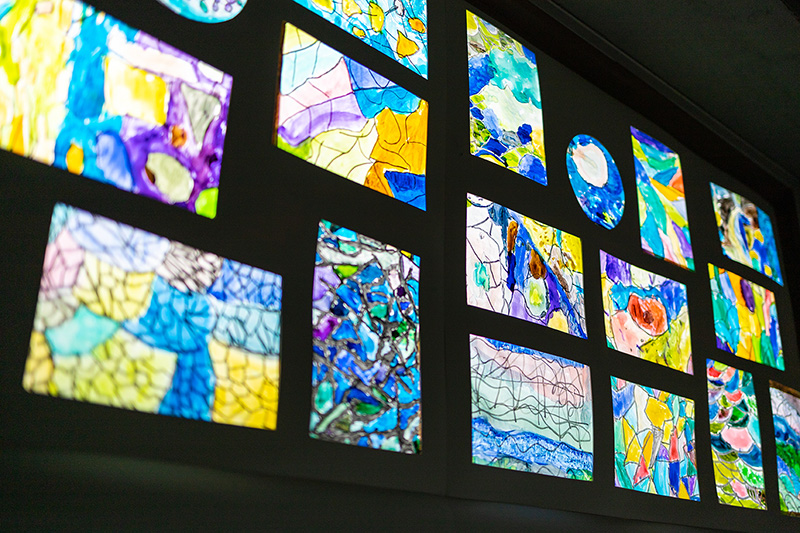
We discover new places and new horizons.
Read more
We also pursue education outside the school walls. At least once a month we go on an interesting excursion, and thus we manage to slowly connect theoretical knowledge with practice already at the first level. In addition, we take trips for new experiences or sometimes go for a run in nature. Our teachers go to other schools for inspiration.
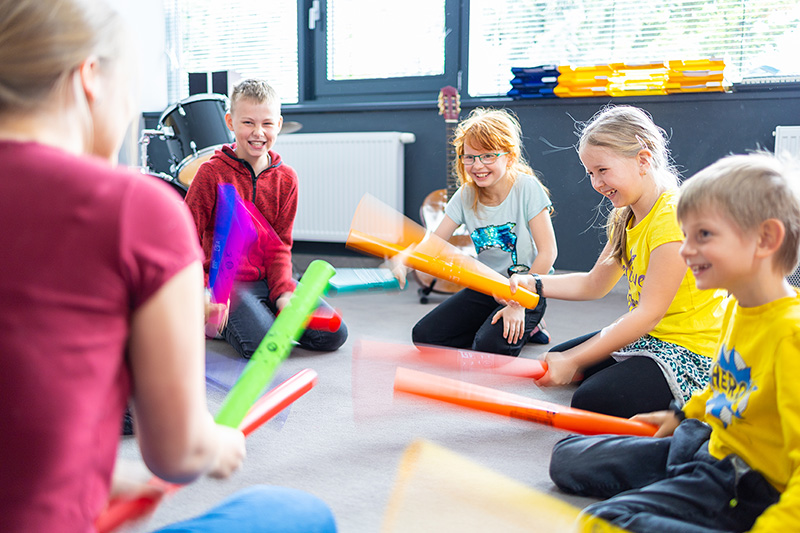
An environment in which learning happens on its own.
Read more
When we built the school, we mainly thought about making the children feel good in it. So we bought the latest equipment, installed healthy lighting and bought ergonomic furniture. We have a playroom, a gym, a studio, a practice kitchen, a school yard on the roof. And to be environmentally friendly, we heat the school using recuperation. When the sun is shining, we cool off with the air conditioning, or we head out to study in our spacious garden with our own facilities.
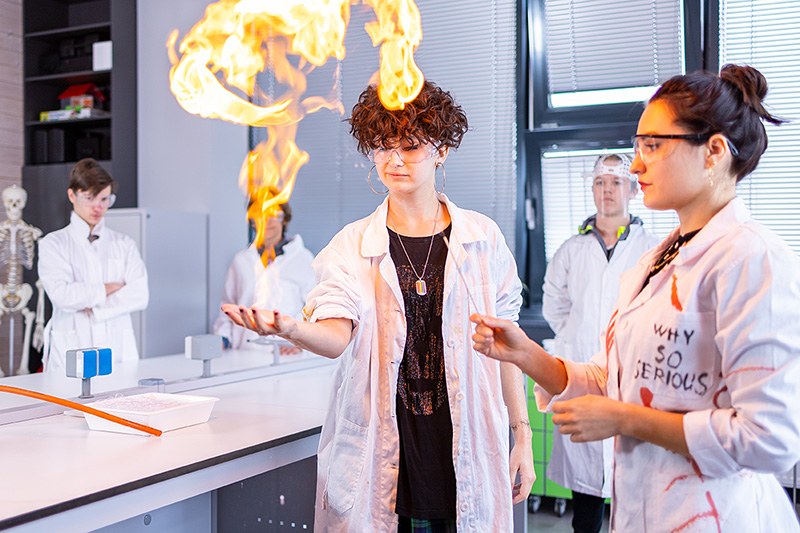
More practical learning for older children.
Read more
The second level in Livingston fully follows the philosophy of the first. At the same time, he takes into account that teenagers need a slightly different approach to education. Here, children learn in thematic blocks to better perceive the material in context. They work on their study plans, which determine what is compulsory, optional, scheduled, or free. We are fans of CLIL, so in biology classes you will meet an English teacher in addition to the subject teacher. At the second stage, we make full use of all the possibilities offered by technology in the one-on-one model. Children carry their iPads, which we can fill with interesting applications. For example, we collect learning materials and tasks in so-called virtual classrooms, where children and parents can access them at any time (including weekends and night hours). Or we work with applications in which films can be created or a frog can be dissected without harming the amphibian.

English? Of course!
Read more
Native speakers at ZŠ Livingston ensure that English is a regular part of the day. We even teach non-linguistic subjects in the form of CLIL and we also offer various optional English workshops. In this way, contact with language becomes completely natural for children. Our children also learn English in Czech-English clubs.
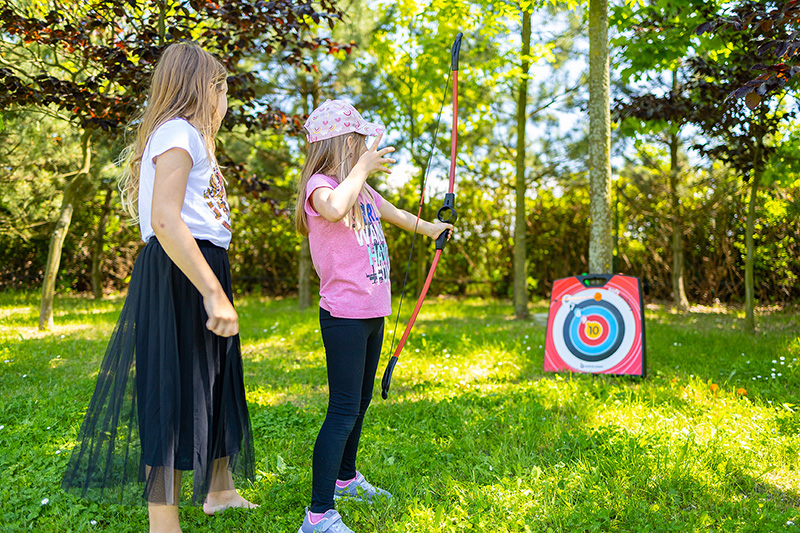
After school activities are as much fun as they are educational.
Read more
With us, the family is not a “storage place” for children that no one has time for, but a full-fledged connection to education with lots of activities and possibilities. Children choose what they enjoy the most and thus continue to develop their potential. Everything happens under one roof, so parents don’t have to transport their children anywhere to the clubs. The overall concept of the group follows the morning part of the day and allows children to rest, have fun or do their homework in peace.
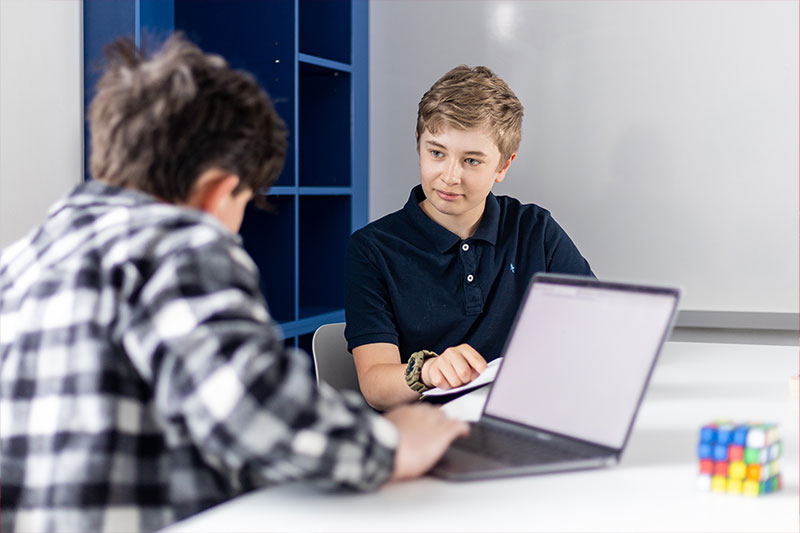
And what then? High School!
Read more
Although we are a young school, we have our first graduates and children transferring to multi-year high schools. We are happy that our school gives children the necessary foundation and enables them to take a different path.
